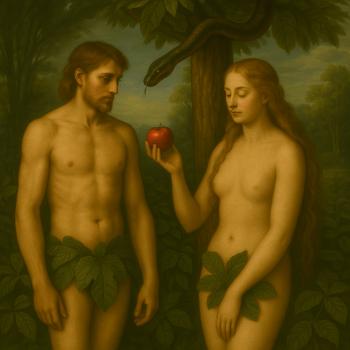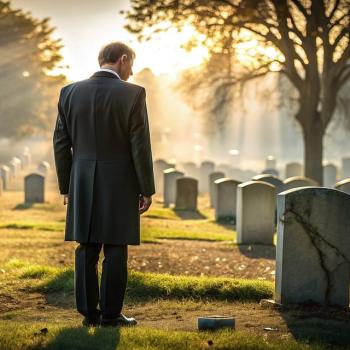Do we consider the other side of the story? Sometimes, we feel pretty strongly about our political and religious beliefs if we do not consider the legitimacy of other beliefs. When we explore them, we realize that reasonable people can disagree, that there are (at least) two sides to every story, and that the truth can be more nuanced or situational than we realize.

Consider the passionate feelings around controversial issues like abortion and guns. There are legitimate concerns for the safety of fetuses in the womb and for schoolchildren in the classroom. Also, there are legitimate concerns for the rights of women to control their bodies and of gun owners to preserve their freedoms.
“My right to swing my fist ends where your nose begins.” Everyone cares about rights. And about safety. But, we all make some choices about which rights to preserve and whose safety to protect. Are some safety advocates more concerned about fetuses than about schoolchildren? Are some rights advocates more concerned about gun owners than about women?
As a society, if we cared only about rights, then more abortions (and more guns) would be acceptable. If we cared only about safety, then fewer abortions (and fewer guns) would be acceptable. Actually, most of us are more comfortable with some abortions (rape and incest) and some guns (hunting rifles) than with other abortions (late-term abortions) and other guns (assault rifles).
These are complicated issues, where reasonable people can disagree. Most people are somewhere in the middle, recognizing the legitimacy of the opposite positions and the nuance of the issues. So, if we only consider one side of the issue, then things look pretty clear to us. But, if we ask the people who hold the opposite positions, then things look pretty clear to them, too.
Religion: What is the Other Side of the Story?
In The Way, I recall people telling me, “I only read one book, the Bible, and it is a really good book.” Sure, I read that book many times. It is a good book. I read a lot of books about that book, too. I know that some people read that book literally. Others read it allegorically, metaphorically, or mythically. I know that the book has been interpreted differently in different cultures.
Also, I read different books in different traditions. Much of the mythology in the Bible (which some consider to be history, rather than mythology) are similar to mythologies in other scriptures. When we study others scriptures, we see how the language of Christianity is similar to the language of others traditions. Also, we see how the language of Christianity is different.
People who have only read one book remind me of people who have only lived in one place. There is nothing wrong with reading only one book or living only in one place. However, if we then say, “Christianity is the best religion” or “Texas is the best place to live,” then we are speaking from ignorance. How would we know, if we have never experienced anything else?
Even in one tradition, like Christianity, there are a number of ways of interpreting the same text. All Christians do NOT believe in the Trinity. Some Christians do NOT believe that Jesus was God or that he was actually born of a virgin or that he was physically resurrected from the dead. All Christians do NOT believe in a literal hell. Some Christians believe in reincarnation.
How essential are our beliefs? If Jesus was born as a man, lived as a man, and died as a man (albeit a very special man) would the wisdom of his words and the power of his works lose their allure, or would we fail to follow a Jesus who might have been more historical than mythological, more human than divine?
Do we consider the other side of the story?
Politics: What is the Other Side of the Story?
In politics, like in religion, it helps to understand both sides of the story. Maybe your conservative friends tell you that a higher minimum wage will hurt small businesses and their shareholders. That makes sense. Maybe your liberal friends tell you that a higher minimum wage will help low-income workers. That makes sense, too. Who to believe?
Once, I did a “deep dive” on the issue, and I discovered that “It depends.” Whether a higher minimum wage helps or hurts depends on the economy, the industry, the region, and the timeframe. Actually, “It depends,” is often the right answer to many complicated questions.
“Bloomberg Business Week” has a new feature called Common Ground that explores complicated issues by examining the issue, the pros, the cons, and the areas of agreement or common ground. Imagine how much calmer and clearer our public discourse would be if more news sources sought the common ground, rather than the battleground, on complicated issues.
Maybe your conservative friends tell you that Joe Biden hurt the economy. That makes sense. Consumer confidence and savings rates are lower. Credit card debt is higher. Maybe your liberal friends tell you that Joe Biden helped the economy. That makes sense, too. Growth, incomes, and the stock market are higher. Inflation and unemployment are lower. Who to believe?
Again, it depends. Whether the economy is better or worse depends on what indicator you are examining and which timeframe you are using. Some things are better; some things are worse.
Do we consider the other side of the story? Sometimes, we can feel pretty strongly about our political and religious beliefs if we do not consider the legitimacy of other beliefs.
If you want to stay up to date on the latest from You Might Be Right, simply subscribe with your email.
The Way is a Silver winner in the 2024 Nautilus Book Awards in the Religion/Spirituality of Other Traditions category.
If you enjoyed this article, please leave a comment at the bottom of this page.
Thanks for reading You Might Be Right!!














